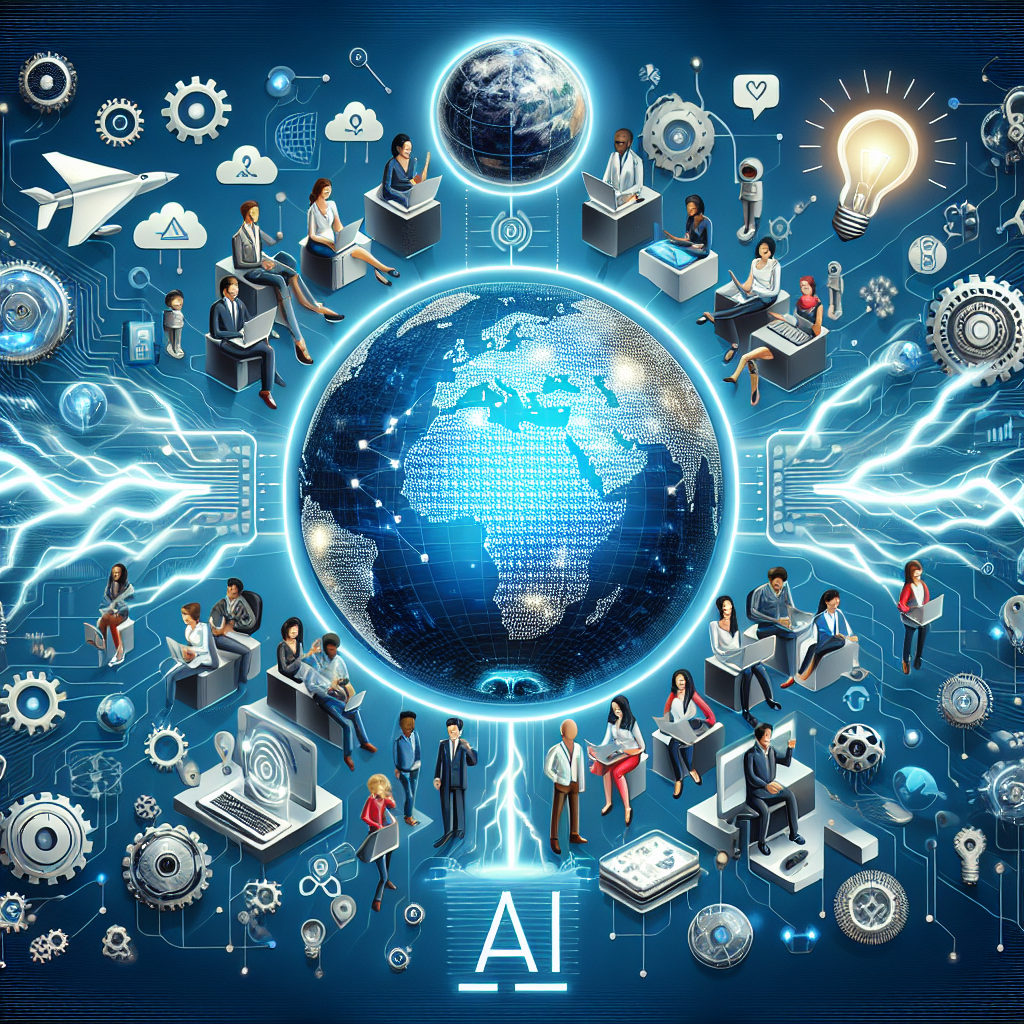The Democratization of AI: Implications for the Future
Artificial intelligence (AI) has rapidly evolved over the past few years, transforming various industries and aspects of our daily lives. What was once considered a niche technology has now become increasingly accessible to businesses and individuals, thanks to the democratization of AI.
The democratization of AI refers to the process of making AI tools, technologies, and resources more widely available to a broader audience, beyond just large tech companies with substantial resources. This trend has been driven by advancements in AI algorithms, cloud computing, and open-source software, making it easier for organizations of all sizes to leverage AI capabilities.
Implications for the Future
The democratization of AI has significant implications for the future, both positive and negative. Here are some of the key implications of this trend:
1. Increased innovation: By making AI more accessible, the democratization of AI is fueling innovation across industries. Small and medium-sized businesses can now leverage AI tools to enhance their operations, make data-driven decisions, and develop new products and services. This democratization is leveling the playing field and enabling more companies to compete on a global scale.
2. Enhanced productivity: AI tools can automate repetitive tasks, analyze vast amounts of data, and provide insights that humans may overlook. By democratizing AI, businesses can improve their efficiency and productivity, freeing up employees to focus on more strategic, high-value tasks. This can lead to cost savings, improved customer experiences, and increased competitiveness.
3. Democratization of knowledge: As AI becomes more accessible, individuals with diverse backgrounds and skill sets can learn how to use AI tools and technologies. Online courses, tutorials, and resources are available to help people develop AI skills and apply them in their professional and personal lives. This democratization of knowledge is empowering individuals to become more tech-savvy and adapt to the changing job market.
4. Ethical considerations: The democratization of AI also raises ethical concerns, such as bias in AI algorithms, data privacy issues, and job displacement. As more organizations adopt AI technologies, it is essential to address these ethical considerations and ensure that AI is used responsibly and ethically. This includes promoting diversity and inclusion in AI development, ensuring transparency in AI decision-making, and protecting individuals’ privacy rights.
5. Regulatory challenges: The rapid growth of AI and its democratization pose challenges for policymakers and regulators. There is a need for clear guidelines and regulations to govern the use of AI technologies, protect consumers’ rights, and ensure fair competition. As AI becomes more pervasive in our society, it is crucial to establish a regulatory framework that balances innovation with ethical considerations and safeguards against potential risks.
FAQs
Q: What are some examples of how AI is being democratized?
A: There are numerous examples of how AI is being democratized across industries. For instance, small businesses can use AI-powered chatbots to improve customer service, retailers can leverage AI algorithms to optimize pricing strategies, and healthcare providers can use AI tools to analyze medical images and diagnose diseases.
Q: How can individuals learn AI skills?
A: There are many resources available for individuals to learn AI skills, such as online courses, tutorials, and coding boot camps. Platforms like Coursera, Udemy, and edX offer AI courses taught by industry experts. Additionally, organizations like Google and Microsoft provide free AI tools and resources for beginners to get started with AI.
Q: What are some ethical considerations in AI development?
A: Ethical considerations in AI development include bias in AI algorithms, data privacy issues, and job displacement. It is essential for organizations to address these ethical concerns by promoting diversity and inclusion in AI development, ensuring transparency in AI decision-making, and protecting individuals’ privacy rights.
Q: How can policymakers regulate the use of AI technologies?
A: Policymakers can regulate the use of AI technologies by establishing clear guidelines and regulations to govern AI applications. This includes protecting consumers’ rights, ensuring fair competition, and addressing ethical considerations. It is crucial for policymakers to collaborate with industry stakeholders to develop a regulatory framework that balances innovation with ethical considerations.
In conclusion, the democratization of AI has profound implications for the future, from fostering innovation and enhancing productivity to raising ethical considerations and regulatory challenges. As AI technologies become more accessible, it is crucial for businesses, individuals, and policymakers to navigate these implications responsibly and ethically. By leveraging AI tools and resources effectively, we can harness the power of AI to drive positive change and shape a more inclusive and sustainable future.

